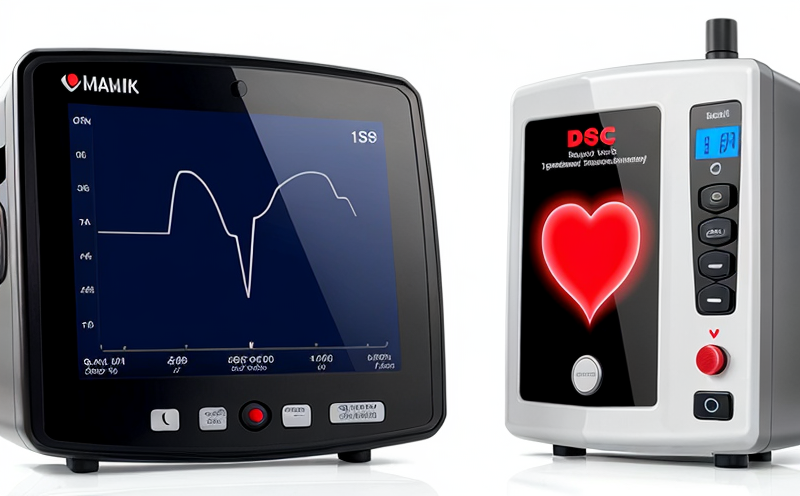ASTM F2077 Shear Fatigue Testing of Cardiovascular Implants
The ASTM F2077 standard is specifically designed to evaluate the shear fatigue strength of cardiovascular implants, including stents and grafts. This test is crucial for ensuring that devices can withstand repeated mechanical stresses encountered during their intended use without failure. The primary purpose of this testing is to prevent potential complications such as strut fracture or dislodgment, which could lead to serious patient harm.
The ASTM F2077 shear fatigue test involves subjecting a specimen to cyclic loading in a controlled laboratory environment. The cyclic loading simulates the dynamic forces experienced by cardiovascular implants within the body over time. This process helps identify any weaknesses that might only become apparent during prolonged use or stress. By adhering strictly to the prescribed protocol, labs can ensure accurate and reliable results.
Preparation of specimens for ASTM F2077 testing is critical. Specimens must be fabricated according to specific dimensions outlined in the standard. Proper specimen preparation ensures that all tests are conducted under consistent conditions, thereby increasing the validity of comparative data between different manufacturers or models.
The test setup involves placing a prepared specimen into a shear fatigue tester. The machine applies controlled cyclic loads along two perpendicular axes (shear planes), simulating the torsional forces experienced by cardiovascular implants during normal operation. Load cycles continue until failure occurs, at which point both the number of cycles endured and the maximum load before fracture are recorded.
It's important to note that ASTM F2077 does not specify a single acceptable limit for shear fatigue strength; instead, it relies on comparative data from previous tests conducted by other manufacturers or institutions. This approach allows for continuous improvement in design and manufacturing processes as industry knowledge evolves.
The results of this test are vital for several reasons:
- To ensure compliance with regulatory requirements
- To demonstrate product safety and efficacy to healthcare providers
- To support marketing efforts by highlighting the durability of products
- To inform further research into improving cardiovascular device performance
Failure to comply with ASTM F2077 can have significant consequences, including recalls, lawsuits, and damage to brand reputation. Therefore, it's essential for manufacturers and researchers to understand the nuances of this testing method fully.
The FDA and other regulatory bodies require compliance with these standards as part of pre-market approval processes. Companies must demonstrate that their products meet or exceed all relevant performance criteria before they can be marketed commercially.
Applied Standards
| Standard Name | Description |
|---|---|
| ASTM F2077-18 | Standard Test Method for Shear Fatigue Strength of Cardiovascular Implants |
| ISO 15843-3:2016 | Cardiovascular stents – Part 3: Determination of fatigue strength in a tensile shear test |
The ASTM F2077 and ISO 15843-3 standards provide the framework for conducting accurate and consistent shear fatigue tests on cardiovascular implants. Compliance with these standards ensures that manufacturers produce safe, effective devices capable of withstanding the rigors of daily use.
Why Choose This Test
The ASTM F2077 test provides valuable insights into how cardiovascular implants will perform under real-world conditions. By simulating cyclic loading, it identifies potential weaknesses that might otherwise go unnoticed until after deployment.
This testing method allows for comparison between different materials and designs, helping manufacturers optimize their products continuously.
Compliance with ASTM F2077 helps ensure regulatory approval, which is essential for bringing new devices to market successfully.
The results of this test can be used to inform ongoing research efforts aimed at improving cardiovascular device performance and safety.
In summary, choosing the ASTM F2077 shear fatigue testing method offers manufacturers a robust tool for ensuring product quality, enhancing patient safety, and supporting regulatory compliance.
Competitive Advantage and Market Impact
Manufacturers who invest in thorough ASTM F2077 testing gain a competitive edge by demonstrating superior product reliability and durability. This can translate into increased market share as healthcare providers prefer devices known for their robustness.
Companies that excel at this type of testing may also attract more investment, either from venture capitalists or strategic partners looking to collaborate on cutting-edge innovations.
A strong track record in complying with ASTM F2077 and similar standards enhances a company's reputation within the medical device industry. This positive image can influence purchasing decisions made by hospitals and clinics.
The overall impact of rigorous ASTM F2077 testing extends beyond individual companies; it contributes to advancements in cardiovascular care, ultimately benefiting patients worldwide.





